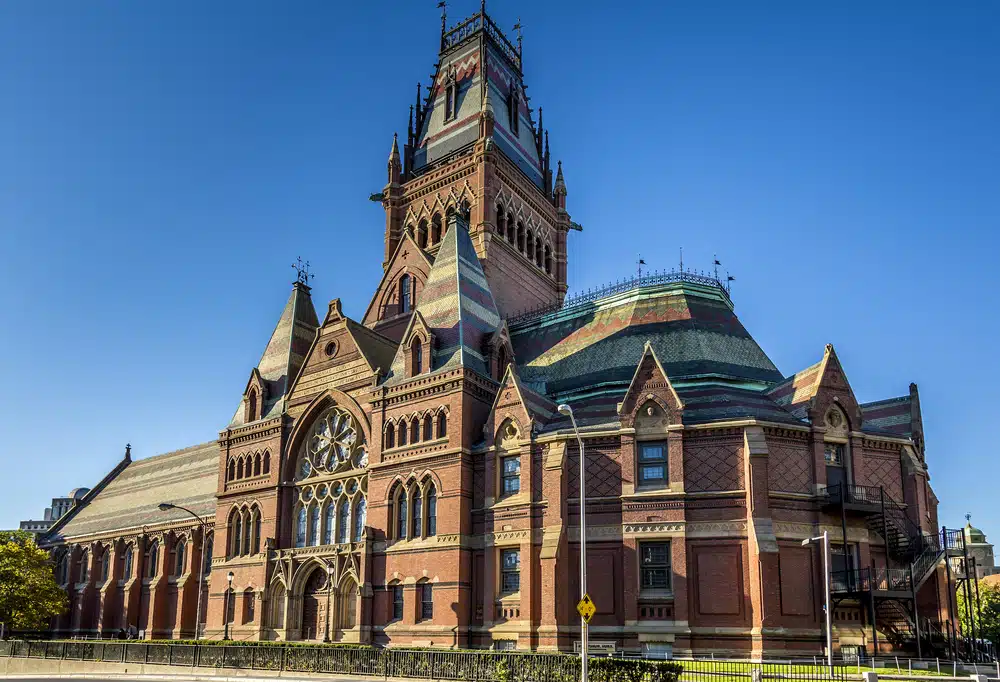The World of the Harvard Secret Society
When it comes to elite societies, Harvard is a name that often comes up in conversation. The university is known for its prestigious clubs and organizations, which extend beyond traditional student groups. Today, we are going to dive into the secretive world of the Harvard secret society and discover what makes them so intriguing. From their history and evolution to their role in campus culture, we will unveil the mysteries behind these exclusive organizations.
A Brief History of Harvard Secret Society
Secret societies have been a part of Harvard campus life for centuries. The earliest documented society was the “Order of the Knights of the Square Table” in 1750, which functioned as an exclusive dining club. Over time, more organizations popped up, including the “Final Clubs” and “Hidden Clubs” in the 1800s. These groups often had a strong social focus, with members bonding over shared interests such as music or sports.
But it wasn’t until the early 20th century that the more infamous secret societies emerged. These groups adopted a more mysterious and exclusive persona, drawing in only the most elite and prestigious members. They also shifted their focus from pure socialization to networking and career advancement.
The Origins of Secret Societies at Harvard
The creation of secret societies at Harvard can be traced back to the formation of the Phi Beta Kappa honor society in 1776. This organization was founded on a desire for academic excellence and in recognition of scholarly achievement. However, as Harvard expanded and more students enrolled, the focus shifted beyond academics.
As the student body grew, so did the desire for exclusive social clubs. The early secret societies were created as a way for students to bond over shared interests and form lasting connections. The “Final Clubs” were some of the most popular, with members often coming from wealthy and influential families.
The Evolution of Secret Societies Over Time
As previously mentioned, secret societies began as a way for like-minded individuals to socialize. Over time, they took on a more exclusive and secretive vibe. The allure of membership in these societies grew as it became known that they provided access to influential people and exclusive events.
However, with this exclusivity came controversy. Many of the secret societies were accused of discrimination and elitism, with some even being forced to disband. In recent years, there has been a push for more inclusive social clubs on campus.
Despite these challenges, the secret societies at Harvard continue to thrive. They remain a symbol of exclusivity and prestige, with members often going on to hold influential positions in politics, business, and the arts.
So, whether you’re a member of a Harvard secret society or not, there’s no denying the impact these organizations have had on Harvard’s campus culture and beyond.
The Most Notorious Harvard Secret Societies
Harvard University is known for its prestigious academics, but it is also home to several secret societies that have been shrouded in mystery for centuries. These societies are exclusive, invite-only clubs that are often associated with wealthy and influential members. Let’s take a closer look at some of the most notorious secret societies at Harvard.
The Porcellian Club
The Porcellian Club is one of the oldest and most well-known secret societies at Harvard. Founded in 1791, it has been the subject of many rumors and legends over the years. The club has only ever accepted male members, and its alumni include several U.S. Presidents and other high-profile figures.
One of the most famous stories about the Porcellian Club is that its members stole the skull of Native American Chief Geronimo from his grave in 1918. The club denied the allegations, but the controversy surrounding the incident only added to the club’s mystique.
The Fly Club
Another longstanding and prominent secret society is the Fly Club, founded in 1836. Like the Porcellian Club, it admits only male members. The Fly Club is known for its elaborate parties and luxurious events.
One of the most interesting aspects of the Fly Club is its clubhouse, which is located on Massachusetts Avenue in Cambridge. The building, which was designed by famous architect Charles Bulfinch, is considered a historic landmark and is listed on the National Register of Historic Places.
The Delphic Club
The Delphic Club is another well-respected Harvard secret society, established in 1884. It accepts both male and female members and has been a driving force behind many campus initiatives, including philanthropic efforts.
One of the most notable members of the Delphic Club is former U.S. President Franklin D. Roosevelt. Roosevelt was a member of the club during his time at Harvard, and it is said that his experiences there helped shape his political views and leadership style.
The Phoenix S.K. Club
The Phoenix S.K. Club is one of the younger secret societies, founded in the 1890s. It is known for its diverse membership and modern focus on entrepreneurship and innovation.
Members of the Phoenix S.K. Club have gone on to achieve great success in various fields, including business, politics, and entertainment. Notable alumni include former U.S. Secretary of State John Kerry and actor Matt Damon.
These secret societies continue to intrigue and fascinate people around the world. While their practices and traditions may be shrouded in secrecy, their impact on Harvard and the world at large cannot be denied.
The Role of Secret Societies in Harvard’s Social Scene
Harvard University is known for its prestigious academic programs, but it is also known for its exclusive social scene. One of the most intriguing aspects of this social scene is the presence of secret societies. These organizations are shrouded in mystery and secrecy, and their membership is highly coveted by students.
In this article, we will explore the role of secret societies in Harvard’s social scene, including the exclusivity and prestige of membership, networking opportunities, career advancement, and their impact on campus culture.
The Exclusivity and Prestige of Membership
Being accepted into a secret society at Harvard is a significant achievement. These organizations are highly exclusive, with only a select few students granted membership each year. The selection process is rigorous and secretive, with little information available about who is chosen and why.
However, the prestige that comes with membership is undeniable. Harvard secret society members are often seen as the elite of the elite, with access to resources and opportunities that are not available to the average student.
Networking Opportunities and Career Advancement
One of the most significant advantages of belonging to a secret society is the networking opportunities that come with it. Members have access to a network of influential people, including alumni who have gone on to become leaders in their respective fields.
This network can be invaluable when it comes to job hunting or other career-related endeavors. In addition, a Harvard secret society offers mentorship programs and other resources to help members succeed in their chosen careers.
The Impact on Campus Culture
The role of secret societies in campus culture is a topic of much debate. Some argue that these organizations foster a sense of elitism and exclusivity that creates divisions among students. They argue that the culture of secrecy that surrounds these societies can be harmful to the overall community, as it creates an atmosphere of suspicion and mistrust.
Others argue that the networks and opportunities that these organizations provide benefit the campus community as a whole. They point to the many philanthropic and community service initiatives that secret societies are involved in, as well as the mentorship and leadership development programs that they offer to members.
In conclusion, secret societies play a significant role in Harvard’s social scene. While their impact on campus culture is a topic of much debate, there is no denying the exclusivity and prestige that come with membership, as well as the networking opportunities and career advancement that these organizations provide.
Whether you are a member of a secret society or not, it is clear that these organizations will continue to be a fascinating and intriguing part of Harvard’s social fabric for years to come.
Controversies and Criticisms Surrounding Secret Societies
Secret societies have always been a topic of fascination and intrigue, with their mysterious rituals and exclusive memberships. However, they have also been the subject of controversy and criticism, especially at Harvard University. In this article, we will explore some of the most significant controversies surrounding secret societies at Harvard.
Accusations of Elitism and Discrimination
One of the most significant criticisms of secret societies at Harvard is their exclusivity. The process of selection is often shrouded in secrecy, with only a select few being invited to join. Many argue that this perpetuates systems of privilege and discrimination, as those who are already well-connected or come from wealthy families are more likely to be selected.
Critics also point out the lack of diversity among members. Many organizations only accept individuals of a certain race or gender, leading to accusations of discrimination. This lack of diversity can be particularly problematic in a university setting, where the goal is to create an inclusive and equitable environment for all students.
The Fight for Gender Inclusivity
Gender exclusion has been a consistent issue in the Harvard secret society. For many years, women were not allowed to join these organizations, leading to protests and calls for change. In recent years, many of these organizations have started to diversify their memberships. Some have opened up to women, while others have created new societies that are explicitly inclusive of underrepresented groups.
While this is a step in the right direction, there is still a long way to go. Many of the most prestigious and exclusive societies at Harvard remain all-male, perpetuating a culture of exclusion and discrimination.
The Debate Over Transparency and Secrecy
The veil of secrecy surrounding these organizations has long been a cause for concern. Many criticize the lack of transparency regarding the selection process and finances of these societies. Critics argue that they operate as shadowy institutions that serve only to empower the privileged few.
On the other hand, supporters of secret societies argue that secrecy is necessary to maintain the integrity of the organizations. They argue that the selection process is rigorous and that members are chosen based on merit, not just connections or wealth.
However, the lack of transparency can also lead to rumors and speculation, further fueling the controversy surrounding these organizations.
In conclusion, the Harvard secret society remains one of the most intriguing aspects of campus life. While the exclusivity and prestige of membership can be alluring, it is essential to acknowledge the controversy and criticism surrounding these organizations. Only through open dialogue and transparency can we begin to move towards a more inclusive and equitable campus culture.
It is up to the members of these societies and the university as a whole to address these issues and work towards creating a more welcoming and inclusive community for all students.
If you’re set on getting into a world-class college but aren’t sure how to make it happen, we can help! AdmissionSight is a leading college entrance expert with over a decade of experience helping students just like you get into the schools of their dreams.
At AdmissionSight, we focus on offering a wide range of services, all aimed at helping students perfect their applications to catch the attention of admissions officers. Contact us today to schedule a free consultation and learn more about what we offer.









































